Services
Our highly-qualified service technicians are able to service your vehicle and accomplish the necessary tasks in order to get your vehicle running at optimum level. We are also happy and willing to answer any question you may have concerning preventive maintenance, proper functioning or any other questions pertaining to you vehicle.
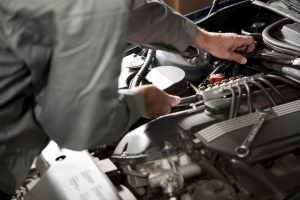
Repair
At Garage Du Quercy, we pride ourselves on our knowledge of German cars.
Our experience allows us to perform not only the necessary repairs, but also to advise you of recommended services that can help prevent more serious problems and improve the efficiency of your vehicle.
Read More
.
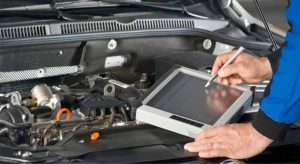
Diagnostics
Experience, training, appropriate tools, and the efficient use of databases allow our technician to identify the root cause of the problem.
Whether it be mechanical or electrical/electronic diagnosis, every vehicle case that comes into our shop, is checked with the proper procedure and recommended equipment.
Over the last decades, electrical systems of the automobile have become more and more sophisticated, with more computers and modules that run various mechanical, information, and entertainment systems.
In turn, the proper diagnosis of any malfunction of these systems, mechanical, or electrical, requires a good understanding of how they work, and communicate with each other.
Our step by step approach, allows us to make the right diagnosis, along with determining the cause. These steps can include; Gathering accurate details of the complaint, using the proper test equipment, performing a road test, and computer data analysis, and consulting our data bases. (all where applicable),
In most cases testing, may only require one hour.
In others, depending on the level of difficulty, and access to certain devices, it may require some dismantling, and further testing.
In either case, can give you a close approximation of what it is going to take, once the first level of diagnostics has been completed, and at that point, the customer is always advised accordingly.

Warning lamps
Today’s vehicles have a wide variety of warning lamps, symbols and messages, too many to talk about here. It’s always a good idea to consult your owner’s manual, to get a better grasp of what that warning means, and which action you should take. In either case we’ll gladly assist you in identifying which system failure has occurred.
Due to the large diversity in types of warning lamps and messages, here we are going to stick to the very basics.
The fundamental use of warning lamps is to inform the driver of a malfunction of a certain system.
These lights are in the instrument panel, and are color coded relating to the seriousness of the problem.
A Red warning lamp means breakdown and possible permanent damage is imminent. Stop your vehicle and turn off the engine.
An Amber lamp means your vehicle needs to visit a repair facility as soon as possible, and that it usually isn’t recommended to drive any further than needed.
A green light means that the system is simply being monitored for routine system check.

Drivability & Diagnostic
Drivability refers to anything having do with how your vehicle is performing while on the road. From the fuel system to affected components and other systems like the power-train, ignition, distributor, exhaust system, brakes, tires, suspension and so in. With the proper diagnostics, the problems are zeroed in on and solved before they become a major issue.
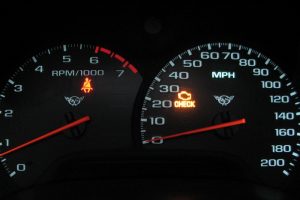
Check Engine Light (or engine symbol)
The on board diagnostic system of engine control unit (ECM is charge of monitoring and controlling various engine components, as well as communicating with other on board computers. So, whether you experience a symptom or not when your check engine light is illuminated, it is always best to take your vehicle in for diagnostic testing, because not all serious problems are with symptom, and it doesn’t necessarily mean that the problem is benign.
If the check engine light flashes while driving, this means that the problem is serious, and must be corrected immediately.
There are many types of failures that can turn this light on, and there is usually no other way you can tell if a new, and potentially serious failure has occurred, if you have been driving for some time with the check engine light already on.
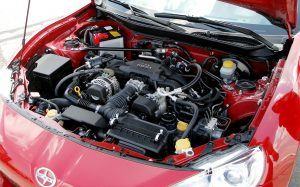
Battery
The electrical system of a vehicle depends a lot on a plentiful reserve of power, and the ability to maintain optimum system voltage.
With today’s sophisticated automotive computers this statement holds true more than ever.
German built vehicles are no exception. Because of the complexity of multiple computerized systems, and communications, engineers have added monitoring systems of the battery and electrical systems as safeguards, warnings, and as diagnostic aids for the field technician.
With new technology, German built cars often require that the replacement battery to be of original brand that can be programmable to the vehicle.
Failure to do so can cause problems that are difficult to detect.
You will surely save time and money, by letting a professional with the proper equipment do the replacement and programming of your battery.
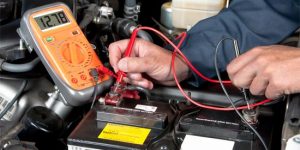
Charging system.
The alternator supplies power to the electrical system, as well as topping up battery power when the vehicle’s engine is running.
This device is quite often misdiagnosed. For that reason, we have the proper test equipment, and knowledge to make the right call.
We can also perform advanced testing usually applies when directed by manufacturer’s preliminary tests, and procedures, or when there seems to be a problem that happens only at certain times. (intermittently)
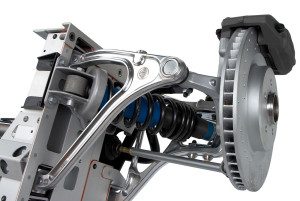
Steering and suspension
Road Handling (definition)
Road handling is the ability of a vehicle to be able to drive in a straight line on an even surface without constant correction from the driver, and for all four wheels to safely adhere to the road’s surface, while maintaining stability, when taking on curves and maintaining a given path.
Read more
Suspension
In order to do this, it is important that your vehicle’s suspension, (and steering components), such as springs, bushings, shocks, computer controlled suspension, stabilizer bars, links, ball joints, tie-rods and Tires are all in good working order and within manufacturer’s specifications. These items should be checked either routinely or preferably as prescribed by the manufacture’s maintenance schedule.
Power Steering
Your vehicle’s power steering system is a very complex and perhaps the most overlooked of all vehicle systems requiring regular maintenance.
Steering system failures include mechanical parts such as tie rods steering gear (rack and pinion), column and joints and proper functioning of the steering assist, such as mechanically or electrically driven pump and pump cooling system, not to mention computer controls.
Additional Information
A little known fact is that other problems can arise because of wear, failures, or changes in the suspension system.
Changes to suspension’s geometry, height, improper wheel sizes that change the scrub radius, and worn shock absorbers, can put improper load on the wheel bearings, ball joints and stress drive axle joints, causing premature wear of these parts, not to mention tire wear.
Furthermore, these factors can also lightly, or dramatically change the vehicle’s road handling ability, affect other moving parts, shorten the life span of the tires, increase fuel consumption, affect the comfort of the vehicle’s passengers.
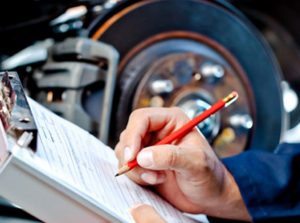
Brakes
Brakes are a normal wear item for any vehicle and will eventually require replacing.
Many factors affect brake wear such as driving habits, operating conditions, and vehicle type to name a few.
You may need to have your brakes inspected if you hear noises or vibration or pulsating when you apply the pedal, your vehicle pulls to one side when braking, your brake pedal feels different, your parking brakes are not functioning, brake wear indicator lamp is on or message (on certain models) or if a brake warning lamp and/or ABS lamp comes on.
In the past, brake rotors and drums were resurfaced during brake service. Today, this method is no longer used due to higher strength materials, and limited wear specifications.
Also, with today’s sophisticated electronic braking, and parking brake systems, servicing brakes without the use of proper procedures and equipment can damage expensive components. Always refer to a professional for servicing. It’s well worth the cost.
